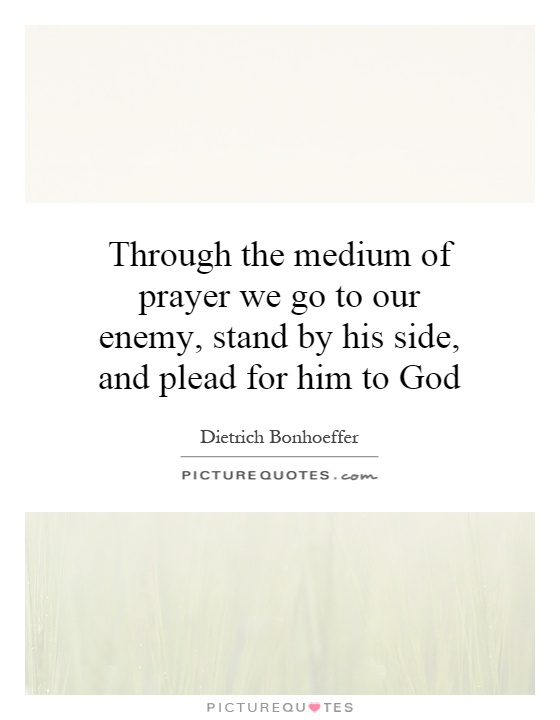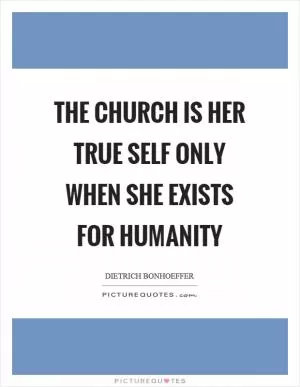Through the medium of prayer we go to our enemy, stand by his side, and plead for him to God

Through the medium of prayer we go to our enemy, stand by his side, and plead for him to God
Dietrich Bonhoeffer, a German theologian and pastor, is known for his courageous stand against the Nazi regime during World War II. He believed in the power of prayer as a means of connecting with God and seeking reconciliation with others, even with those who were considered enemies. Bonhoeffer's understanding of prayer went beyond mere words spoken to God; it was a transformative act that allowed individuals to empathize with their enemies and seek their well-being.Bonhoeffer's quote, "Through the medium of prayer we go to our enemy, stand by his side, and plead for him to God," reflects his belief in the importance of interceding on behalf of others, even those who may have wronged us. He understood that true reconciliation and healing could only come through prayer and a willingness to see the humanity in others, even in those we perceive as enemies.
In the context of Bonhoeffer's own life, this quote takes on a deeper significance. As a vocal critic of the Nazi regime, Bonhoeffer was seen as an enemy of the state and faced persecution for his beliefs. Despite this, he never wavered in his commitment to seeking justice and reconciliation, even for those who sought to harm him. Through his actions and writings, Bonhoeffer exemplified the power of prayer as a means of bridging divides and fostering understanding between individuals.
Bonhoeffer's concept of praying for one's enemies is rooted in the teachings of Jesus, who instructed his followers to love their enemies and pray for those who persecute them. By standing by the side of our enemies in prayer, we acknowledge their humanity and seek to understand their perspective, even if we may never fully agree with their actions. This act of empathy and compassion can lead to healing and reconciliation, both on a personal level and in broader societal contexts.












 Friendship Quotes
Friendship Quotes Love Quotes
Love Quotes Life Quotes
Life Quotes Funny Quotes
Funny Quotes Motivational Quotes
Motivational Quotes Inspirational Quotes
Inspirational Quotes